arthritis support
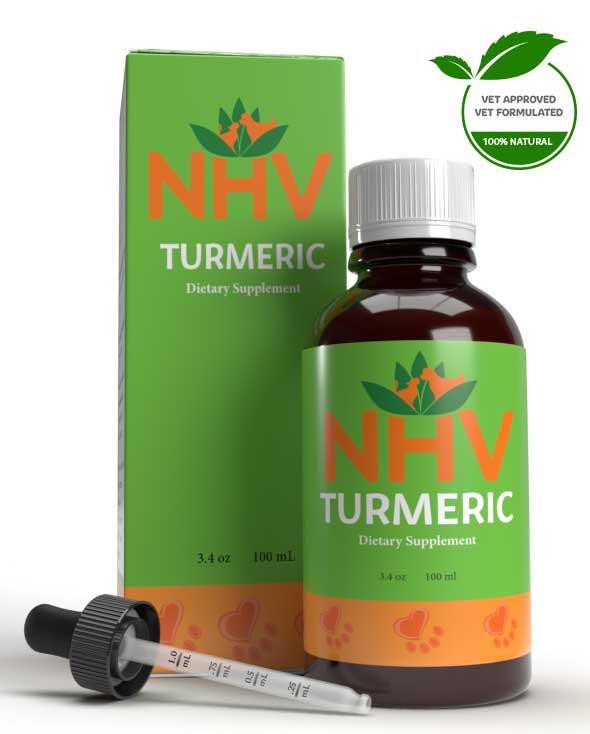
free shipping over $100 (USA & Canada)
1-877-937-4372 the pet expert hotline

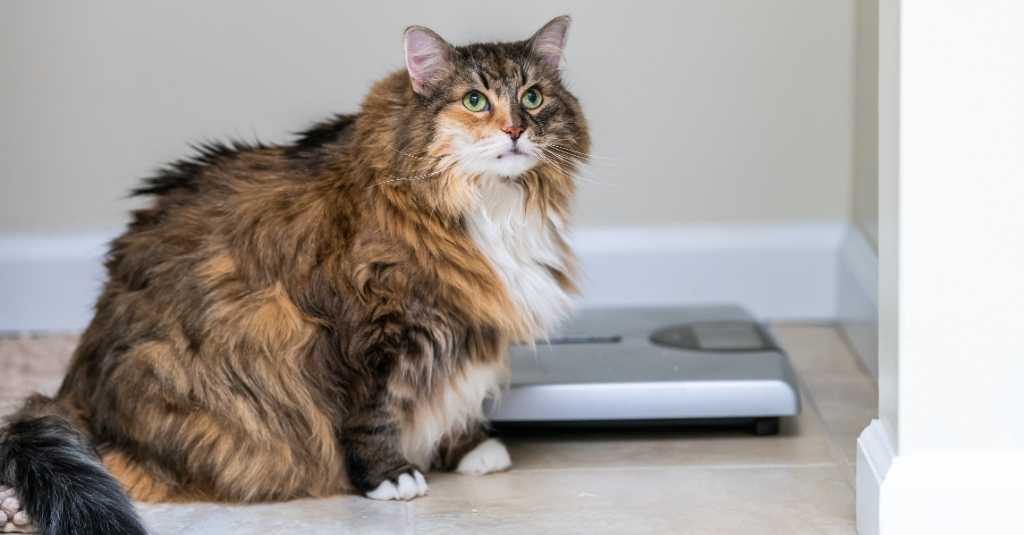
One problem that pet parents are struggling more and more with is an overweight pet. Cats are particularly prone to being obese. In fact, it’s estimated that 25-50% of cats are overweight in the United States. Obesity in cats is associated with health risks such as cardiovascular diseases, bladder, and mammary cancer, hypertension, hyperlipidemia, anesthetic, and surgical complications, decreased heat tolerance and stamina, and reproductive problems.
Obesity in cats is defined as body weight in excess of 15% above normal, resulting from the accumulation of fat. It is also considered a pro-inflammatory factor, as the body fat releases substances that cause inflammation, and this may be the explanation for so many health problems that obese cats can present.
Cats that are obese can have health issues like:
Obesity in cats occurs when energy intake exceeds energy expenditure and other risk factors are present, such as neutering and dietary factors. Neutering and spaying, especially male cats, can predispose them to obesity.
Neutered cats tend to have less activity because they no longer have the incentive to turn around and fight with other males over a female. This does not mean that a cat should not be neutered, but they must exercise and be fed a well-balanced diet.
If obesity is associated with hypothyroidism and hyperadrenocorticism, it is important to treat these issues as well.
Obese cats are usually tested for liver disease and diabetes mellitus (sugar diabetes). Other tests may be recommended to assess for obesity-related diseases in other organs.
Many pet owners ask about medication and products that can help their cats to lose weight. Generally, a pet parent will want to start a vet-guided weight reduction program. If obesity is associated with hypothyroidism and hyperadrenocorticism, it is important to treat these issues as well. There are also some herbs and spices that can help in this process.
Common herbs and spices such as turmeric, ginger, cinnamon, and black pepper have been proven, through research, to have anti-obesity effects. These studies have indicated that the bio-active constituents in these spices can induce differentiation and apoptosis, reduce lipid accumulation, and promote thermogenesis in 3T3-L1 adipocytes.
For example, Turmeric can suppress fat tissue growth. It plays multiple modulatory roles in the inhibition of adipogenesis, induction of the browning in white adipocytes, and apoptosis in 3T3-L1 adipocytes, indicating its potential for the treatment of obesity. Studies have suggested that Ginger extract could regulate obesity-related metabolic disorders by elevating muscle mitochondrial biogenesis and serum HDL-C level. Cinnamon extracts, capsaicin, crocin, DAT, and curcumin, adjusting glucose levels and fatty acid breakdown. Cinnamon extracts, DAT, thiacremonone, quercetin, and curcumin could inhibit the protein and mRNA expressions of TG synthesis and lipogenesis-related enzymes, such as ACC, SCD, GPDH, and FAS, reducing the fat accumulation in the mature adipocytes.
Research has proven Black Pepper’s anti-obesity effect. It reduced body weight (FAT%) and ameliorated High Fat Diet-induced hyperlipidemia and its constituents. These herbs have also been showing many other beneficial properties that may support the treatment of hypothyroidism, hyperadrenocorticism, and many other conditions.
NHV Turmeric is composed of Turmeric (Curcuma longa) and Black Pepper (Piper nigrum), these two herbs have been reported to be beneficial in many different health conditions, they are also beneficial for pets that are obese.
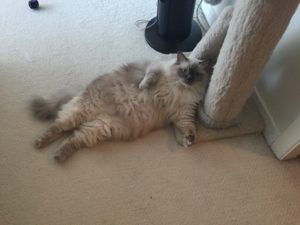
Weight reduction programs involve a multistep approach that includes good owner commitment, a feeding plan, and an exercise plan. For the animal to lose weight, it is necessary for energy expenditure to be greater than energy intake. This is accomplished by increasing exercise and feeding a diet that is lower in fat and higher in fiber.
Nutrients in diets formulated for weight loss won’t lead to other nutrient deficiencies. Weight loss is better achieved with meal feeding rather than leaving food available for your cat for a longer period. It is also important to limit treats and not allow access to other pet’s food or to human food.
Getting a cat to exercise can be difficult. It helps to place toys in locations that force them to climb up or down or to jump. Some cats will chase toys or lights, and feeders are available to force the cat to play with them in order to reach the food.
When the desired target weight is reached, body weight is monitored monthly to ensure the ideal weight is maintained. Prevention of obesity in growing cats is very important. Working with a veterinarian is also important because of the many obesity-related diseases that occur in cats.
Our team of pet experts can help you with tricks to get your cats to play, diet tips, and more.
Book a consult with Dr. Amanda here or get a customized diet plan, specially formulated for your pet.
arthritis support

Support for Arthritis and Cancer
buy 2 and save $3
3 month supply for a small to medium size
What is it?
Turmeric is an herb that offers support for cardiovascular issues, skin health, liver and kidney disease, arthritis, and overall well-being.
How does it work?
Why trust it?
NHV Turmeric is vet-formulated and vet-approved.

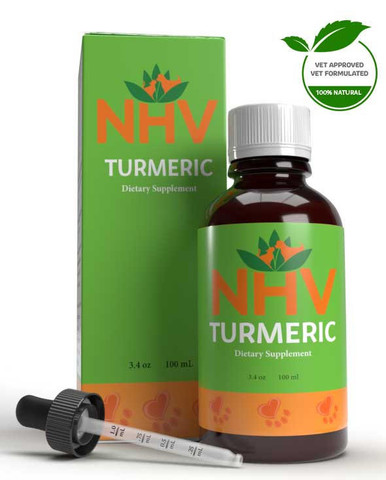
What is it?
Turmeric is an herb that offers support for cardiovascular issues, skin health, liver and kidney disease, arthritis, and overall well-being.
How does it work?
Why trust it?
NHV Turmeric is vet-formulated and vet-approved.

From their tails to their whiskers, a cat’s body needs to be able to fight whatever comes their way - and not just the toys they like to chase, but health concerns too. NHV Turmeric for cats can be given to your furkiddos for a little extra TLC. It’s well-tolerated by our whiskered furkiddos, and can offer them many benefits!
What goes into your cat’s body every day will make a difference when it is time to fight a disease, or when they already have one. That’s why NHV supplements are designed to be given each and every day for things like:
It can even be used proactively before your furry friend becomes sick in the first place by giving them a regular boost of natural goodness!
Turmeric itself is a root with vibrant orange-golden flesh. It’s golden in the world of herbalism for pets with its many healing properties.
One of turmeric’s most well-recognized healing properties is its antioxidant content. Antioxidants can help scavenge for free radicals, which are unstable molecules that cause damage to the cells. The free radical scavenging properties of turmeric can support the body in processing and removing these molecules, minimizing the damage they can do.
At NHV, we are experts at harnessing the benefits of herbal ingredients specifically for your pets. When you choose NHV Turmeric, you’re choosing decades of holistic pet wellness experience from vets and herbalists. Our formula is:
We are proud to have been a part of many cats’ success stories over the decades. Check out this feline friend of ours, Willow, who has used our Turmeric for cats formula for comfort and wellness.
Willow’s Story: “I have no doubt that the supplements from NHV have been a huge part in maintaining her health and staving off the cancer that was found in late 2021”
Holistic Veterinarian Approves of Using Turmeric for Cats
Dr. Hillary, a holistic vet, writes an in-depth overview of Turmeric and why she believes turmeric can play a beneficial role in pet health. Read Dr. Hillary’s Turmeric overview here.
All NHV supplements are made with the finest quality organic or ethically harvested herbs. We use non-GMO vegetable glycerin as our base. NHV products are full-spectrum extracts.
Select your pet's weight to determine the correct dose.
To be taken twice daily. Determine your pet’s weight and then use the easy chart below to determine the correct dose. This is the minimum dosage.
Pet's Weight Dosage
0 - 15 lb = 0.5 ml
16 - 30 lb = 1.0 ml
31 - 45 lb = 1.5 ml
46 - 60 lb = 2.0 ml
61 - 75 lb = 2.5 ml
Over 75 lb = 3.0 ml
How to Administer
Shake well before use. The easiest method is to use the dropper provide and places the drops into your pet’s food or favorite treat. You can also use the dropper and squirt directly into the pet’s mouth.
Some pets can be finicky, if this occurs consider hiding the drops in foods most pet’s love such as fish, chicken or yogurt or a favourite treat. If your pet only eats dry food then soak a few kibbles at feeding time.
For Best Results
Herbal dietary supplements are beneficial to the health and wellbeing of your pet and are safe for long-term use. Every pet responds to natural herbal supplements differently, therefore it is important to be consistent and administer the product daily. Supplements generally take two to four weeks to take effect, however this will vary from one animal to the next.
Product Storage
All NHV Natural Pet Products are pure herbal extracts and contain no artificial additives, preservatives or coloring. Shelf life after opening is 6 months and must be refrigerated after opening.
Cautions and Contraindications: Do not use Turmeric in pregnant or nursing animals. Speak to your vet before using our products. A second visit is recommended if your pet’s condition does not improve, or deteriorates after continued use of the supplements.
From their tails to their whiskers, a cat’s body needs to be able to fight whatever comes their way - and not just the toys they like to chase, but health concerns too. NHV Turmeric for cats can be given to your furkiddos for a little extra TLC. It’s well-tolerated by our whiskered furkiddos, and can offer them many benefits!
What goes into your cat’s body every day will make a difference when it is time to fight a disease, or when they already have one. That’s why NHV supplements are designed to be given each and every day for things like:
It can even be used proactively before your furry friend becomes sick in the first place by giving them a regular boost of natural goodness!
Turmeric itself is a root with vibrant orange-golden flesh. It’s golden in the world of herbalism for pets with its many healing properties.
One of turmeric’s most well-recognized healing properties is its antioxidant content. Antioxidants can help scavenge for free radicals, which are unstable molecules that cause damage to the cells. The free radical scavenging properties of turmeric can support the body in processing and removing these molecules, minimizing the damage they can do.
At NHV, we are experts at harnessing the benefits of herbal ingredients specifically for your pets. When you choose NHV Turmeric, you’re choosing decades of holistic pet wellness experience from vets and herbalists. Our formula is:
We are proud to have been a part of many cats’ success stories over the decades. Check out this feline friend of ours, Willow, who has used our Turmeric for cats formula for comfort and wellness.
Willow’s Story: “I have no doubt that the supplements from NHV have been a huge part in maintaining her health and staving off the cancer that was found in late 2021”
Holistic Veterinarian Approves of Using Turmeric for Cats
Dr. Hillary, a holistic vet, writes an in-depth overview of Turmeric and why she believes turmeric can play a beneficial role in pet health. Read Dr. Hillary’s Turmeric overview here.
All NHV supplements are made with the finest quality organic or ethically harvested herbs. We use non-GMO vegetable glycerin as our base. NHV products are full-spectrum extracts.
Select your pet's weight to determine the correct dose.
To be taken twice daily. Determine your pet’s weight and then use the easy chart below to determine the correct dose. This is the minimum dosage.
Pet's Weight Dosage
0 - 15 lb = 0.5 ml
16 - 30 lb = 1.0 ml
31 - 45 lb = 1.5 ml
46 - 60 lb = 2.0 ml
61 - 75 lb = 2.5 ml
Over 75 lb = 3.0 ml
How to Administer
Shake well before use. The easiest method is to use the dropper provide and places the drops into your pet’s food or favorite treat. You can also use the dropper and squirt directly into the pet’s mouth.
Some pets can be finicky, if this occurs consider hiding the drops in foods most pet’s love such as fish, chicken or yogurt or a favourite treat. If your pet only eats dry food then soak a few kibbles at feeding time.
For Best Results
Herbal dietary supplements are beneficial to the health and wellbeing of your pet and are safe for long-term use. Every pet responds to natural herbal supplements differently, therefore it is important to be consistent and administer the product daily. Supplements generally take two to four weeks to take effect, however this will vary from one animal to the next.
Product Storage
All NHV Natural Pet Products are pure herbal extracts and contain no artificial additives, preservatives or coloring. Shelf life after opening is 6 months and must be refrigerated after opening.
Cautions and Contraindications: Do not use Turmeric in pregnant or nursing animals. Speak to your vet before using our products. A second visit is recommended if your pet’s condition does not improve, or deteriorates after continued use of the supplements.
multivitamin support
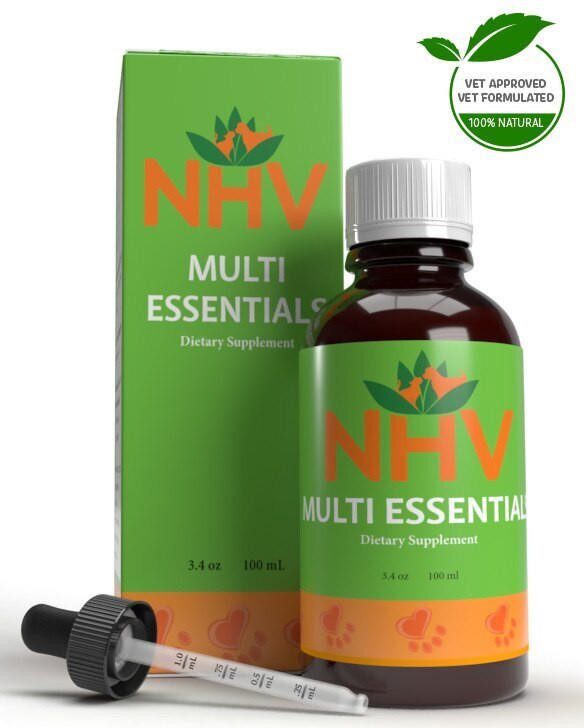
Herbal Digestive Aid, Energy Booster, and Multivitamin for Cats
buy 2 and save $3
3 month supply for a small to medium size pet
What Is It?
This multivitamin for cats will ensure your kitty (of any age) is getting an extra dose of minerals and vitamins for extra energy, vitality, and health.
How Does it Work?
Why Should I Trust It?
100% natural, easy-to-administer cat remedy formulated by vets.

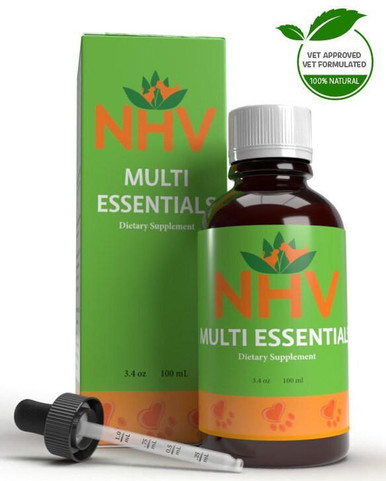
What Is It?
This multivitamin for cats will ensure your kitty (of any age) is getting an extra dose of minerals and vitamins for extra energy, vitality, and health.
How Does it Work?
Why Should I Trust It?
100% natural, easy-to-administer cat remedy formulated by vets.

The health benefits of multivitamins aren’t just for humans. Cats have many of the same nutrient needs as we do, and some need even more than others depending on their age and health.
A multivitamin supplies the vital nutrients your kitty needs to be healthy and to fight off potential health problems. Dr. Cook, DVM, CVA in her blog states that vitamins “help to regulate the body processes, protect the body from environmental toxins, and break down nutrients such as carbohydrates, proteins, and fats so the body can utilize them”.
The best way to give your cat vitamins and minerals are from whole food sources and not just isolated synthetic vitamins. NHV Multi Essentials contains a powerful blend of alfalfa, oat, dandelion, kelp, parsley, marshmallow, chickweed, stinging nettle, Asian ginseng, yucca and Oregon grape.
Health Benefits of NHV’s Multi-Essentials for Cats
With NHV’s multi vitamins for cats, you get a proprietary blend of all-natural ingredients that are organically grown and contain no artificial additives, preservatives, or coloring. Some of the health benefits include:
Multivitamins for cats will ensure your kitty is getting the proper nutrients that could be lacking due to daily stressors, a poor diet, and environmental toxins.
Signs of Vitamin Deficiency in Your Cat
Kitties Who’ve Benefited from NHV Multi Essentials
NHV multi vitamin for cats has helped thousands of pets around the world. Here are just a few of their stories:
DEALING WITH DIGESTIVE ISSUES: MICI THE CAT LOVES HIS VITAMINS NHV MULTI ESSENTIALS
HERBAL MULTIVITAMINS AND TURMERIC HELP CATS, OATMEAL AND MELISSA LIVE HAPPIER
CAN CATS WITH FELV LIVE A HEALTHY AND NORMAL LIFE?
If you have questions regarding holistic support including vitamin supplements for cats, ask an NHV expert because, at NHV, we want your cat to feel clawtastic naturally!
Select your pet's weight to determine the correct dose.
To be taken twice daily. Determine your pet’s weight and then use the easy chart below to determine the correct dose. This is the minimum dosage.
Pet's Weight Dosage
0 - 15 lb = 0.5 ml
16 - 30 lb = 1.0 ml
31 - 45 lb = 1.5 ml
46 - 60 lb = 2.0 ml
61 - 75 lb = 2.5 ml
Over 75 lb = 3.0 ml
How to Administer
Shake well before use. The easiest method is to use the dropper provide and places the drops into your pet’s food or favorite treat. You can also use the dropper and squirt directly into the pet’s mouth.
Some pets can be finicky, if this occurs consider hiding the drops in foods most pet’s love such as fish, chicken or yogurt or a favorite treat. If your pet only eats dry food then soak a few kibbles at feeding time.
For Best Results
Herbal dietary supplements are beneficial to the health and wellbeing of your pet and are safe for long-term use. Every pet responds to natural herbal supplements differently, therefore it is important to be consistent and administer the product daily. Supplements generally take two to four weeks to take effect, however this will vary from one animal to the next.
Product Storage
All NHV Natural Pet Products are pure herbal extracts and contain no artificial additives, preservatives or coloring. Shelf life after opening is 6 months and must be refrigerated after opening.
Cautions and Contraindications
Do not use Multi Essentials in pregnant or nursing animals. Speak to your vet before using our products. A second visit is recommended if your pet’s condition does not improve, or deteriorates after continued use of the supplements.
All information provided by NHV Natural Pet Products is for educational purposes only.
The health benefits of multivitamins aren’t just for humans. Cats have many of the same nutrient needs as we do, and some need even more than others depending on their age and health.
A multivitamin supplies the vital nutrients your kitty needs to be healthy and to fight off potential health problems. Dr. Cook, DVM, CVA in her blog states that vitamins “help to regulate the body processes, protect the body from environmental toxins, and break down nutrients such as carbohydrates, proteins, and fats so the body can utilize them”.
The best way to give your cat vitamins and minerals are from whole food sources and not just isolated synthetic vitamins. NHV Multi Essentials contains a powerful blend of alfalfa, oat, dandelion, kelp, parsley, marshmallow, chickweed, stinging nettle, Asian ginseng, yucca and Oregon grape.
Health Benefits of NHV’s Multi-Essentials for Cats
With NHV’s multi vitamins for cats, you get a proprietary blend of all-natural ingredients that are organically grown and contain no artificial additives, preservatives, or coloring. Some of the health benefits include:
Multivitamins for cats will ensure your kitty is getting the proper nutrients that could be lacking due to daily stressors, a poor diet, and environmental toxins.
Signs of Vitamin Deficiency in Your Cat
Kitties Who’ve Benefited from NHV Multi Essentials
NHV multi vitamin for cats has helped thousands of pets around the world. Here are just a few of their stories:
DEALING WITH DIGESTIVE ISSUES: MICI THE CAT LOVES HIS VITAMINS NHV MULTI ESSENTIALS
HERBAL MULTIVITAMINS AND TURMERIC HELP CATS, OATMEAL AND MELISSA LIVE HAPPIER
CAN CATS WITH FELV LIVE A HEALTHY AND NORMAL LIFE?
If you have questions regarding holistic support including vitamin supplements for cats, ask an NHV expert because, at NHV, we want your cat to feel clawtastic naturally!
Select your pet's weight to determine the correct dose.
To be taken twice daily. Determine your pet’s weight and then use the easy chart below to determine the correct dose. This is the minimum dosage.
Pet's Weight Dosage
0 - 15 lb = 0.5 ml
16 - 30 lb = 1.0 ml
31 - 45 lb = 1.5 ml
46 - 60 lb = 2.0 ml
61 - 75 lb = 2.5 ml
Over 75 lb = 3.0 ml
How to Administer
Shake well before use. The easiest method is to use the dropper provide and places the drops into your pet’s food or favorite treat. You can also use the dropper and squirt directly into the pet’s mouth.
Some pets can be finicky, if this occurs consider hiding the drops in foods most pet’s love such as fish, chicken or yogurt or a favorite treat. If your pet only eats dry food then soak a few kibbles at feeding time.
For Best Results
Herbal dietary supplements are beneficial to the health and wellbeing of your pet and are safe for long-term use. Every pet responds to natural herbal supplements differently, therefore it is important to be consistent and administer the product daily. Supplements generally take two to four weeks to take effect, however this will vary from one animal to the next.
Product Storage
All NHV Natural Pet Products are pure herbal extracts and contain no artificial additives, preservatives or coloring. Shelf life after opening is 6 months and must be refrigerated after opening.
Cautions and Contraindications
Do not use Multi Essentials in pregnant or nursing animals. Speak to your vet before using our products. A second visit is recommended if your pet’s condition does not improve, or deteriorates after continued use of the supplements.
All information provided by NHV Natural Pet Products is for educational purposes only.
discomfort support

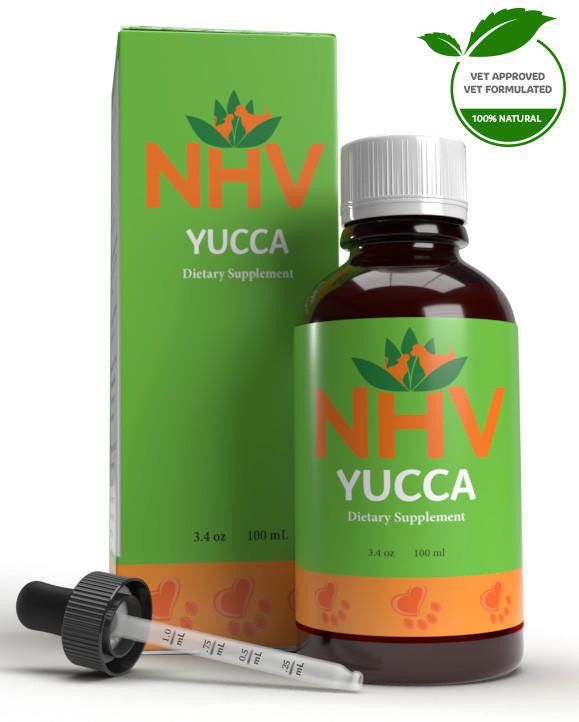
Support for Discomfort and Appetite Stimulant
buy 2 and save $3
3 month supply for a small to medium size
What is it?
NHV Yucca is used for cats as a supplement to provide nutrients, and may be helpful for discomfort, inflammation, and to increase or balance the appetite.
How does it work?
Why trust it?
NHV supplements are formulated by a veterinarian and master herbalist with a combined 50 years of experience.


What is it?
NHV Yucca is used for cats as a supplement to provide nutrients, and may be helpful for discomfort, inflammation, and to increase or balance the appetite.
How does it work?
Why trust it?
NHV supplements are formulated by a veterinarian and master herbalist with a combined 50 years of experience.

Yucca is used in cat food as well as food for other animals around the world. Its root is a highly nutritious herb that’s rich in vitamin C, beta-carotene, B vitamins, magnesium, iron, calcium, manganese, protein, niacin, and phosphorus.
Yucca contains two very beneficial compounds: sarsasapogenin and smilagenin. These two compounds work on the mucous membranes of the small intestine. These compounds help with the penetration and absorption of minerals and vitamins. Sarsasapogenin and smilagenin are known as steroidal saponins (phytosterols) which act as precursors to corticosteroids produced naturally by the body.
Steroidal saponins support the immune function of the body while stimulating and supporting the production of its own corticosteroids and corticosteroid–related hormones. Due to this action, studies conducted on Yucca have shown that it may be beneficial and effective for discomfort relief and inflammation in conditions such as arthritis. Yucca for cats may also be a natural appetite stimulant and may also help reduce the production of urease, which contributes to the unpleasant odors of urine and feces in some cats.
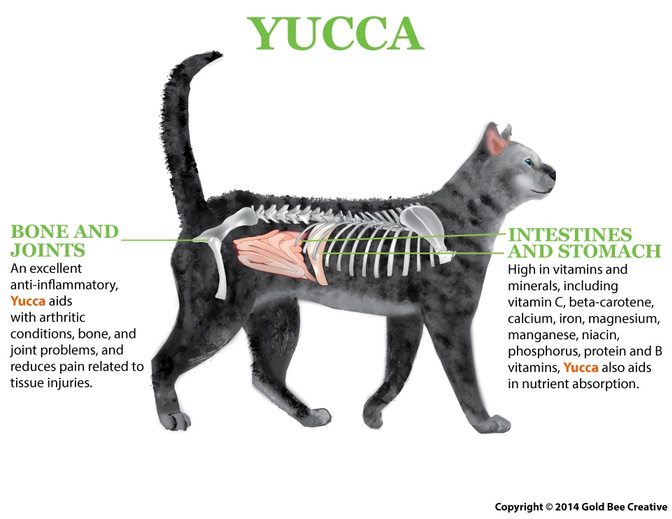
Yucca - Commonly used for supporting arthritis, as an anti-inflammatory, nutritive, antitumor, and digestive supplement.
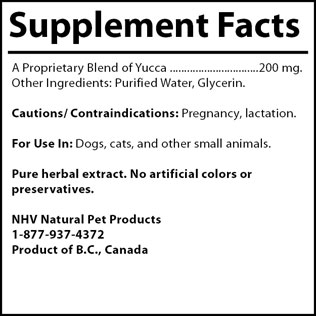
Select your pet's weight to determine the correct dose.
To be taken twice daily. Determine your pet’s weight and then use the easy chart below to determine the correct dose. This is the minimum dosage.
Pet's Weight Dosage
0 - 15 lb = 0.5 ml
16 - 30 lb = 1.0 ml
31 - 45 lb = 1.5 ml
46 - 60 lb = 2.0 ml
61 - 75 lb = 2.5 ml
Over 75 lb = 3.0 ml
How to Administer: Shake well before use. The easiest method is to use the dropper provided and place the drops into your pet’s food or favorite treat. You can also use the dropper and squirt directly into the pet’s mouth. Some pets can be finicky, if this occurs consider hiding the drops in foods most pet’s love such as fish, chicken, yogurt, or a favorite treat. If your pet only eats dry food then soak a few kibbles at feeding time.
For Best Results: Herbal dietary supplements are beneficial to the health and well-being of your pet and are safe for long-term use. Every pet responds to natural herbal supplements differently, therefore it is important to be consistent and administer the product daily. Supplements generally take two to four weeks to take effect, however this will vary from one animal to the next.
Product Storage:
All NHV Natural Pet Products are pure herbal extracts and contain no artificial additives, preservatives or coloring. Shelf life after opening is 6 months and must be refrigerated after opening.
Cautions and Contraindications
Do not use Yucca in pregnant or nursing animals.
Speak to your vet before using our products. A second visit is recommended if your pet’s condition does not improve, or deteriorates after continued use of the supplements. All information provided by NHV Natural Pet Products is for educational purposes only.
Yucca is used in cat food as well as food for other animals around the world. Its root is a highly nutritious herb that’s rich in vitamin C, beta-carotene, B vitamins, magnesium, iron, calcium, manganese, protein, niacin, and phosphorus.
Yucca contains two very beneficial compounds: sarsasapogenin and smilagenin. These two compounds work on the mucous membranes of the small intestine. These compounds help with the penetration and absorption of minerals and vitamins. Sarsasapogenin and smilagenin are known as steroidal saponins (phytosterols) which act as precursors to corticosteroids produced naturally by the body.
Steroidal saponins support the immune function of the body while stimulating and supporting the production of its own corticosteroids and corticosteroid–related hormones. Due to this action, studies conducted on Yucca have shown that it may be beneficial and effective for discomfort relief and inflammation in conditions such as arthritis. Yucca for cats may also be a natural appetite stimulant and may also help reduce the production of urease, which contributes to the unpleasant odors of urine and feces in some cats.

Yucca - Commonly used for supporting arthritis, as an anti-inflammatory, nutritive, antitumor, and digestive supplement.

Select your pet's weight to determine the correct dose.
To be taken twice daily. Determine your pet’s weight and then use the easy chart below to determine the correct dose. This is the minimum dosage.
Pet's Weight Dosage
0 - 15 lb = 0.5 ml
16 - 30 lb = 1.0 ml
31 - 45 lb = 1.5 ml
46 - 60 lb = 2.0 ml
61 - 75 lb = 2.5 ml
Over 75 lb = 3.0 ml
How to Administer: Shake well before use. The easiest method is to use the dropper provided and place the drops into your pet’s food or favorite treat. You can also use the dropper and squirt directly into the pet’s mouth. Some pets can be finicky, if this occurs consider hiding the drops in foods most pet’s love such as fish, chicken, yogurt, or a favorite treat. If your pet only eats dry food then soak a few kibbles at feeding time.
For Best Results: Herbal dietary supplements are beneficial to the health and well-being of your pet and are safe for long-term use. Every pet responds to natural herbal supplements differently, therefore it is important to be consistent and administer the product daily. Supplements generally take two to four weeks to take effect, however this will vary from one animal to the next.
Product Storage:
All NHV Natural Pet Products are pure herbal extracts and contain no artificial additives, preservatives or coloring. Shelf life after opening is 6 months and must be refrigerated after opening.
Cautions and Contraindications
Do not use Yucca in pregnant or nursing animals.
Speak to your vet before using our products. A second visit is recommended if your pet’s condition does not improve, or deteriorates after continued use of the supplements. All information provided by NHV Natural Pet Products is for educational purposes only.
Published: December 27, 2019